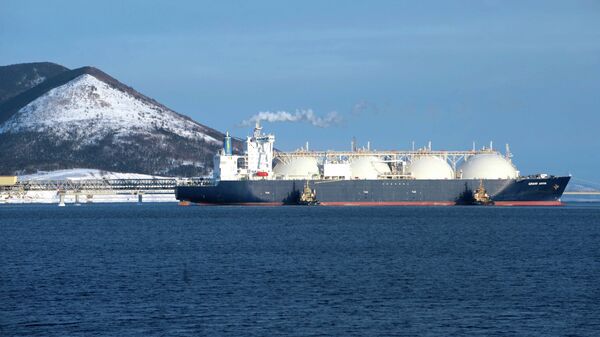Earlier on Wednesday, Putin set out the key areas of development of the Russian Far East at the plenary session of the Eastern Economic Forum being held in Russia on September 11-13. In particular, the Russian president has ordered that the transportation between Europe and the Pacific Rim should be improved with the help of the Northern Sea Route, whose annual flow of goods should be increased to 80 million tonnes.
"The expectation to get [the shipping volume] to 80 million tonnes per year, which is now proposed by [the Russian] president, is definitely challenging. But I’m sure he wants to challenge all the operators to do that. We definitely need investments to reach those levels," Vauraste said.
"The additional fees you have to comply are the icebreaking fees and the insurance fees, which are higher. The simple calculation on one transportation is that you save 25 percent of voyage time, which lowered your costs, the additional costs from icebreaking fees and insurance fees cannot exceed your savings. Otherwise, it makes no sense," he said.
Vauraste added that icebreaker operators, who helped cargo ships move through the icy Arctic waters, were indeed interested in increased shipping traffic via the Northern Sea Route in order to cover their operational costs.
"For the moment, the transit traffic going through the Northern Sea Route varies from 1-5 million tonnes per year. When the sanctions were imposed, it went down. This is not yet enough to cover the operational cost [of icebreaker operators]," Vauraste explained.
"For the Northern Sea Route, it depends on the year. If it’s an easy year, you can do an operation with the help of an icebreaker and also heavy ice-class tankers. That’s already possible to some extent. But only very few vessels are capable of doing that," Vauraste pointed out.
Among other challenges potentially hampering the implementation of Putin's proposal Vauraste mentioned a new Russian legislation going into effect later this year, which could restrict non-Russian flagged icebreakers from operating on the Northern Sea Route.
In June 2017, the Russian government announced that it had proposed to introduce a number of legislative amendments that would give vessels sailing under the Russian flag the exclusive right to transport and store raw hydrocarbons and coal loaded on vessels along the Northern Sea Route.
READ MORE: Room Exists for Greater US-Russia Cooperation in Arctic — Alaska Senator





